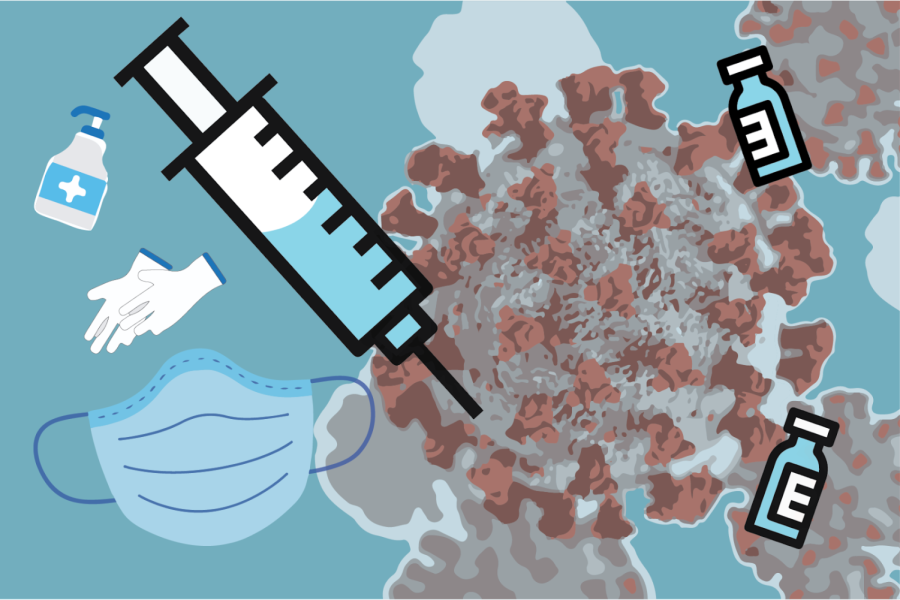NU health professionals advise caution with Thanksgiving travel, gatherings
Daily file illustration by Angeli Mittal
Northwestern Medicine provides tips and guidelines to keep the community safe over the Thanksgiving holiday.
November 17, 2021
With Thanksgiving just around the corner, many students are making arrangements for their return home.
But Health professionals advise caution, because amid the holiday spirit, COVID-19 cases are expected to rise.
COVID-19 vaccines have been pivotal for combatting the pandemic — more than 97% of the Northwestern community is vaccinated. But Feinberg Prof. Sadiya Khan said this is not sufficient for a return to pre-pandemic “normalcy.”
Precautionary measures should remain in place, especially around high-risk populations such as individuals aged 65 and older and those with underlying medical conditions. Because of waning immunity of the vaccines, people who were vaccinated at least six months ago and have not yet received a booster shot are also more susceptible to infection.
However, receiving the booster is not a guarantee of safety against the virus. Northwestern Medicine experts recommend having a conversation with at-risk populations to discuss comfort levels with planned holiday celebrations.
Despite the recent announcement of expanded Pfizer authorization to children aged 5 to 11, this group will not be fully vaccinated by the time Thanksgiving comes, so they’re still at risk of spreading COVID-19.
Health experts also ask college students to exercise caution, especially with the end of Fall Quarter bringing an influx of final exams and projects. Stress can reduce the immune system’s capability to fight off infection, making this population also increasingly vulnerable to COVID-19.
At-risk populations and college students living on campus are eligible for a booster if six months have elapsed since their last Moderna or Pfizer dose. Those who received Johnson & Johnson’s one-dose COVID-19 vaccine can get a booster two months later. The maximum effectiveness of the booster, however, doesn’t occur until about two weeks after receiving it.
Northwestern Medicine experts also recommend taking advantage of the available at-home COVID-19 tests throughout the Thanksgiving break. Khan advises frequent testing, but especially before traveling and before Thanksgiving dinner.
The possibility of false negatives remains because of the three-to-five day delay between COVID-19 exposure and symptoms. But frequent testing aims to reduce the risk of infection going unnoticed.
Those who test positive are advised against traveling and to confirm the test result with PCR testing.
The University provides free at-home COVID-19 tests for students, staff and faculty at the Donald P. Jacobs Center.
Email: [email protected]
Twitter: @amittal27
Related Stories:
— NU presents aggregate COVID-19 vaccination, testing statistics during Faculty Assembly
— NU positivity rate sees slight increase, new reported positives remains steady
— Moderna, Johnson & Johnson booster shots available in Evanston


